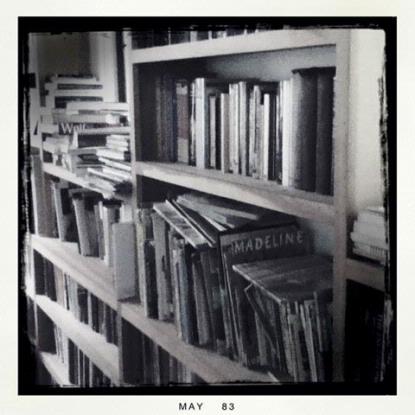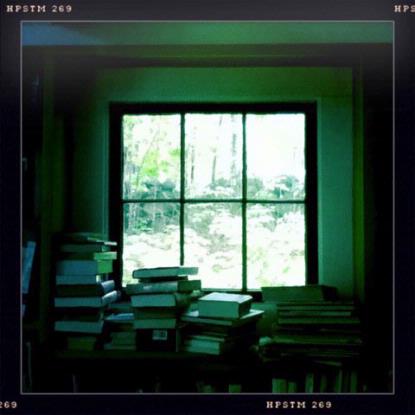
It’s that time again. If you read, if you have a weakness for shiny stacks of paperbacks in airports, or the carousel of sale books at the library—they’re only a dollar!—then you know what happens. You stack a few sideways in the space between the upright books and the bottom of the next shelf, and then a few more. You clean up one set of shelves, and leave books you’ve cleared away—“Oh, I don’t want to read this right now”—in leaning towers on the floor of another room. You put some in boxes, which also have to sit somewhere.
If your children read as you do, they too hoard books, packing them into the cracks between bed and wall as a squirrel lines its nest with nuts, tucking them into drawers, into bins that are supposed to hold something practical like hats or scarves. If they’re industrious they also periodically throw a bunch in a box and leave it on the floor of your bedroom for you to trip over. You walk around your house wondering where you could squeeze in another bookshelf—just one more, you’re going to get rid of most of the books that won’t fit, but you’ve culled, oh, the fiction collection, as much as you can stand to. You need the rest of those books. You haven’t read them all yet. Your children might want to read them when they’re older.
This is where I am on a dull gray day, though the memory of the last big sort has not yet faded. Leave aside the boxes and boxes of books I’ve never even looked at, moldering in a neighbor’s barn—don’t even ask. Leave aside other family books I may have to deal with someday: when my father moved abroad he left his substantial collection in a friend’s attic, and since then has had time in his new life for many cycles of collecting and divesting. That house, attic and all, is for sale, and my father is thousands of miles away. Still, all I have to face now are the books on this property, in the house and in the studio, between which two buildings many books get carried back and forth.
In my youth, I confess, I looked at people’s bookshelves and thought they might hold the key to someone’s character or personality. Age has cured me of such nonsense, and the awareness that comes with age that unless we cull relentlessly—objects, mementoes, books, ideas, opinions, habits—the dregs of the past can weigh us down. People’s books can mean anything, who they were, who they hope they’ll be someday, what they can’t let go of, what they want more of in their life. Can I trust I’ll remember what I need to about my past without keeping all the autobiographical criticism I read in grad school? Can I accept that certain future selves are no longer a possibility, and get rid of the sign language dictionaries (not yet), Yoga Spandakarika (maybe), Carl Sandburg’s four volumes on Lincoln during the war years? Another no. I’d rather get rid of Yoga Spandakarika, and anyway my husband wants any book about Lincoln, and anyway—Carl Sandburg wrote four volumes about Lincoln during the war years!
Further considerations arise, from the mundane and practical to the existential and back:
- We need to move the tall bookshelf out of the girls’ room. It lurks over my daughter’s bed and makes it hard for her to sleep. Plus, books get dusty—too many in a bedroom disturb the air quality, so in mine I try to keep it to just the hundred or so that I might want to read next. But oh, so many books to find a home for!
- I’m pretty sure I could free a living room wall for additional bookshelves, but not until summer. Or maybe the summer after that.
- If we build shelves over the toilet in the new basement bathroom, I might be able to move the entire poetry collection down there. But when?
- What if it gets harder to buy real books? Won’t I wish I’d saved more for our dotage? Or will the words I want to read just be beamed, shimmering and vivid as tropical birds, into the foliage of the tree above the hammock in which I’m spending my last years?
- Do I really need so many gardening books? So many plays? Livres en français? Health books? Who’s going to read about…? But when I walk around trying to find examples with which to finish that sentence, no matter what I use to fill in the blank, my answer is, “I might. I might. I might.”
You see the difficulty.

Photos by Juno Lamb


